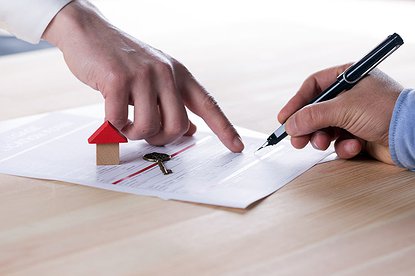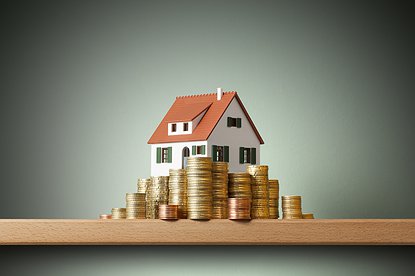Get Pre-Approved Now
When Can You Refinance a Mortgage?
Use the Code Below to Embed this Infographic into Your Website!
There are many reasons why Canadian homeowners refinance their mortgages. Some refinance for lower interest rates, and others do so to access the equity in their homes. Still others refinance to consolidate their debts with other lenders. Just as there are several reasons to refinance your mortgage, there are several ways to go about it.
Lower Interest Rates
The number one reason why Canadian homeowners refinance their mortgages is to get lower interest rates over time. Although there are penalties for breaking a mortgage agreement and repaying your loan early in some cases, the actual savings provided by the lower interest rate mitigate the penalties. Penalties for early payoff vary, too. If you have a fixed rate mortgage, you will pay either three months interest or the interest rate differential penalty, whichever one is greater. For a variable rate mortgage, you will pay three months interest. To realize your savings, simply calculate the amount you will save with the lower interest rate over the course of the mortgage and then subtract your penalties.
Home Equity Access
Another reason to refinance a mortgage is to access the equity in the home or property. Equity is the cash value of your home, and you can calculate this amount by subtracting the balance of your mortgage from the home or propertys actual appraised value. Home equity pays for college, home renovations, and more, and there are several ways to access it. You may choose to break your mortgage, extend your mortgage with another lender, or even take out a home equity line of credit that you can draw on with low monthly payments.
Debt Consolidation
Finally, some borrowers choose to refinance a mortgage in order to pay off existing debts with other lenders. Because mortgages often come with interest rates much lower than those associated with credit cards and other types of consumer debt, they are excellent for debt consolidation. As an example, if you have $40,000 in debt from credit cards, high-interest auto loans, and other lines of credit, then refinancing your home for a lump sum of cash to repay these lenders can save you plenty of money in the end.
How to Refinance a Mortgage
There are several ways to refinance a mortgage, but the best option is adding a home equity line of credit, when possible. You will only make small monthly interest payments on the outstanding balance. Another option involves breaking your contract early to move your mortgage to another lender. Finally, you may be able to obtain a "blended" mortgage from your lender. In this case, your current rate and any additional money will be blended together using the current market rates. In this case, you should expect to pay more than a traditional mortgage interest rate.
If you want to enjoy lower interest rates, access the equity in your home or property, or even pay off expensive credit card and other consumer debt, you may want to refinance your mortgage. However, be sure to review all of the options available to you before you make a decision, and consider the implications they may have on your finances in the end.




